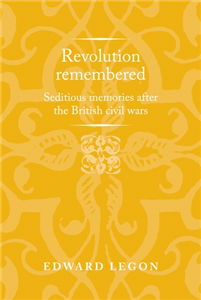Description
More Information
Rights Information
Albania, Algeria, Angola, Argentina, Armenia, Australia, Austria, Bahrain, Belgium, Belize, Benin, Bolivia, Bosnia and Herzegovina, Botswana, Brazil, Bulgaria, Burkina Faso, Burundi, Cameroon, Canada, Cape Verde, Central African Republic, Chad, Chile, China, Colombia, Comoros, Congo [DRC], Congo, Republic of the, Costa Rica, Ivory Coast, Croatia, Czech Republic, Denmark, Djibouti, Ecuador, Egypt, El Salvador, Equatorial Guinea, Eritrea, Estonia, Ethiopia, Faroe Islands, Finland, France, French Guiana, Gabon, Gambia, Georgia, Germany, Ghana, Greece, Guatemala, Guinea, Guinea-Bissau, Guyana, Honduras, Hongkong, Hungary, Iceland, India, Indonesia, Iran, Iraq, Ireland, Israel, Italy, Japan, Jordan, Kazakhstan, Kenya, Kuwait, Latvia, Lebanon, Lesotho, Liberia, Libya, Lithuania, Luxembourg, Macau, China, Macedonia [FYROM], Madagascar, Malawi, Malaysia, Mali, Malta, Mauritania, Mauritius, Mayotte, Mexico, Mongolia, Montenegro, Morocco, Mozambique, Namibia, Netherlands, New Zealand, Nicaragua, Niger, Nigeria, Norway, Oman, Pakistan, Panama, Paraguay, Peru, Philippines, Poland, Portugal, Puerto Rico, Qatar, Reunion, Romania, Russia, Rwanda, Saint Helena, Sao Tome and Principe, Saudi Arabia, Senegal, Serbia, Seychelles, Sierra Leone, Singapore, Slovakia, Slovenia, Somalia, South Africa, South Korea, Spain, Sri Lanka, Sudan, Suriname, Swaziland, Sweden, Switzerland, Syria, Taiwan, Tanzania, Thailand, Timor-Leste, Togo, Tokelau, Tunisia, Turkey, Uganda, Ukraine, United Arab Emirates, United Kingdom, United States, Uruguay, Venezuela, Vietnam, Western Sahara, Yemen, Zambia, Zimbabwe, South Sudan, Cyprus, Palestine, Bangladesh, Cambodia, Liechtenstein, Azerbaijan
Endorsements
Following the restoration of Charles II and the Church of England in 1660, it seemed the people of Britain were ready to put the revolutionary period behind them. Yet despite a regime of monitoring and censorship, parliamentarians and republicans continued to identify with the oppositional spirit of the civil war, brazenly endorsing the 'good old cause'. This book explores 'seditious memories' in speech and writing between 1660 and 1688. It shows how they functioned as points of resistance within the Restoration's politics of memory, counteracting and even subverting efforts by royalists to censure those who had opposed crown and established church. Historians have tended to view parliamentarian and republican ideas as the preserve of a minority of malcontents, but legal records and government documents reveal a reservoir of sympathy among the ordinary people of the era. This sympathy was manifested in the form of misbehaviour on the official anniversaries of the regicide and the Restoration, among other things. The book concludes by examining how seditious memories were transmitted by a generation of men and women who had experienced war and revolution to their children and grandchildren. Applying the techniques of memory studies to the Restoration era, Revolution remembered will be of interest to scholars and students of seventeenth-century Britain.
Reviews
Following the restoration of Charles II and the Church of England in 1660, it seemed the people of Britain were ready to put the revolutionary period behind them. Yet despite a regime of monitoring and censorship, parliamentarians and republicans continued to identify with the oppositional spirit of the civil war, brazenly endorsing the 'good old cause'. This book explores 'seditious memories' in speech and writing between 1660 and 1688. It shows how they functioned as points of resistance within the Restoration's politics of memory, counteracting and even subverting efforts by royalists to censure those who had opposed crown and established church. Historians have tended to view parliamentarian and republican ideas as the preserve of a minority of malcontents, but legal records and government documents reveal a reservoir of sympathy among the ordinary people of the era. This sympathy was manifested in the form of misbehaviour on the official anniversaries of the regicide and the Restoration, among other things. The book concludes by examining how seditious memories were transmitted by a generation of men and women who had experienced war and revolution to their children and grandchildren. Applying the techniques of memory studies to the Restoration era, Revolution remembered will be of interest to scholars and students of seventeenth-century Britain.
Author Biography
Edward Legon is Lecturer in Heritage Management at Queen Mary University of London
Manchester University Press
Manchester University Press is a leading UK publisher known for excellent research in the humanities and social sciences.
View all titlesBibliographic Information
- Publisher Manchester University Press
- Publication Date September 2021
- Orginal LanguageEnglish
- ISBN/Identifier 9781526160737 / 1526160730
- Publication Country or regionUnited Kingdom
- FormatPrint PDF
- Pages248
- ReadershipGeneral/trade; College/higher education; Professional and scholarly
- Publish StatusPublished
- Dimensions234 X 156 mm
- Biblio NotesDerived from Proprietary 4550
- SeriesPolitics, Culture and Society in Early Modern Britain
- Reference Code14299
Manchester University Press has chosen to review this offer before it proceeds.
You will receive an email update that will bring you back to complete the process.
You can also check the status in the My Offers area

Please wait while the payment is being prepared.
Do not close this window.



